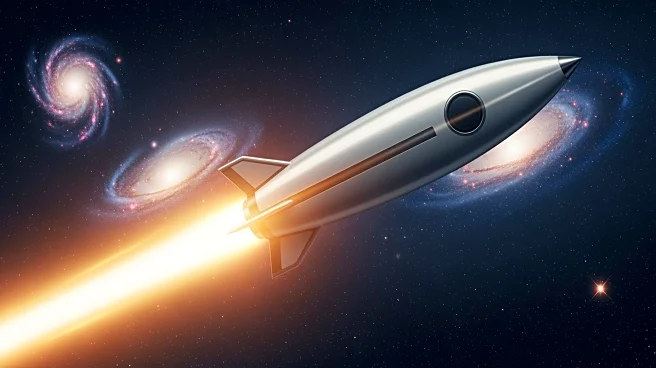What's Happening?
SpaceX's Falcon 9 rocket successfully launched from Cape Canaveral Space Force Station on November 2, 2025, as part of the Bandwagon-4 rideshare mission. The rocket carried 18 payloads, including experimental
technologies and satellites, to low Earth orbit. This mission is part of SpaceX's satellite-rideshare program, which aims to make space access more affordable for various stakeholders, such as universities and startups. The Falcon 9's first stage landed at Landing Zone 2, marking another successful recovery that helps reduce spaceflight costs and increase launch frequency.
Why It's Important?
The successful launch and landing of SpaceX's Falcon 9 underlines the company's continued leadership in reducing spaceflight costs through reusable rocket technology. Rideshare missions like Bandwagon-4 provide affordable access to space for smaller entities, fostering innovation and research opportunities. This approach democratizes space access, allowing a broader range of participants to contribute to technological advancements. The mission's success also reinforces SpaceX's role in supporting the growing demand for satellite deployment and space exploration, which is crucial for global communication and scientific research.
What's Next?
SpaceX is expected to continue expanding its rideshare program, offering more opportunities for diverse payloads to reach orbit. The success of Bandwagon-4 may encourage more universities and startups to participate in future missions, potentially leading to increased innovation in space technology. As SpaceX refines its reusable rocket technology, the company may further reduce launch costs, making space access even more attainable. The industry will likely see continued growth in satellite deployment and space exploration initiatives, driven by the affordability and reliability of SpaceX's launch services.
Beyond the Headlines
The routine success of SpaceX's rocket landings highlights the transformative impact of reusable technology on the space industry. This innovation not only reduces costs but also accelerates the pace of space exploration and satellite deployment. The rideshare program's emphasis on affordability and accessibility reflects broader trends towards inclusivity in space endeavors, potentially leading to a more diverse range of contributors to space research and technology development.









